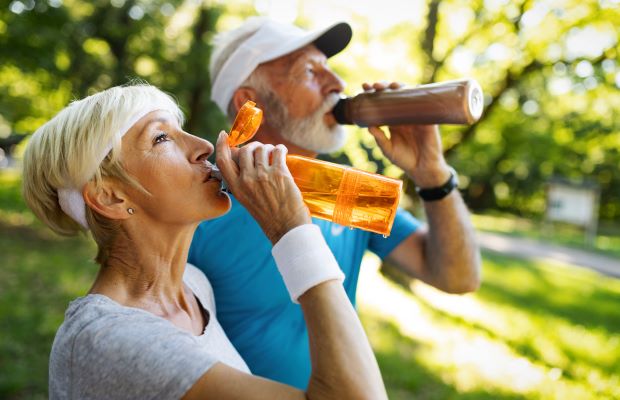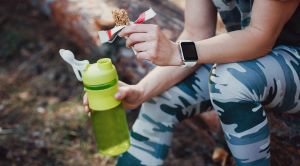
4 sports nutrition mistakes you’re probably making
Senior dietitian Victoria Taylor shares the most common sports nutrition mistakes and how you can avoid them.


1. Treating yourself after exercise

It can be easy to overcompensate for exercise you’ve done by treating yourself to more indulgent meals or extra snacks. If you’re craving a biscuit, then have it. But beware, overdo it and you might end up gaining weight despite all your hard work.
Try to exercise before one of your main meals. You’ll be able to satisfy your hunger with food you would have eaten anyway, rather than adding an extra snack. Or next time you feel hungry, grab a glass of water. You may just be thirsty after your workout.
2. Loading up on sports drinks, gels or bars

There’s lots of marketing to convince you that sports supplements are needed to boost performance. But they can be expensive, contain a lot of calories and may not be necessary. For most active people doing moderate amounts of exercise, your body will have sufficient energy in its stores, so there is no need for sports drinks, energy gels and bars. The focus should be on fuelling properly with a balanced meal before a workout, so your energy tank is full before you start.
3. Using protein supplements

Although protein requirements do increase slightly with regular exercise, most of us are already eating more protein than our bodies need. This means there is no need to top yourself up with protein shakes or similar.
4. Fuelling up with energy drinks

Energy drinks are not the same as sports drinks. They tend to be loaded with caffeine and other stimulants to give a rush of energy. While studies show that having a moderate amount of caffeine may improve performance for endurance exercise, these drinks don’t replace sports drinks that provide energy and electrolytes. It’s better to boost your energy levels with a carbohydrate-based meal, and keep hydrated with water.
What to read next...
Food for fitness: what should I eat before a workout?




